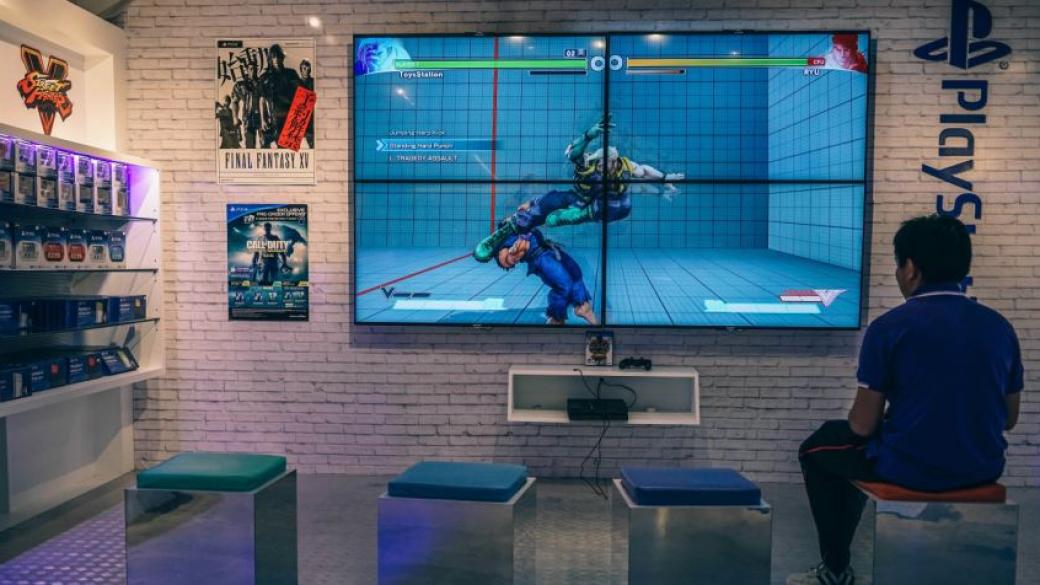Rearrangement of The Gaming Market.
Sony and Microsoft started competing within the new generation of consoles and bought significant assets in video game development

© ECONOMIC.BG / Unsplash
Gamers are able to argue about almost anything – whether they prefer shooters, strategies or other game genres. Whether they like fantasy titles like World of Warcraft, sci-fi like Mass Effect, or football simulators like FIFA, and who their favorite character or streamer is. However, one dispute seems to overshadow everyone else - whether it is best to play on a personal computer or on a console. The first option is more expensive (if we want the computer to be powerful enough to play games), but it can also be used for work, movies and everything else.
Game consoles (also called plug-ins), on the other hand, are specialized computers designed only for gaming, which have very good features for this purpose and, according to the prevailing opinion, can make the experience incomparably more enjoyable. This is a
billion-dollar market
dominated by two titans - the Japanese Sony and the American software giant Microsoft, with the console families PlayStation and Xbox, respectively. They are trying in every way to get the leading share of the sector. Until fifteen years ago, when the third generation of plug-ins was on sale, another Japanese company was among the leaders - Nintendo. With the penetartion of the fourth generation, however, it was pushed aside by Sony and Microsoft, which remained in the battle for leadership. And recently they introduced the
fifth generation of consoles
putting high expectation on them. Several things are changing in the battle for the next generation of gaming devices. First of all, the new plug-ins will be much more affordable. The price battle was started by Sony, which announced a price of $ 399 for one of the versions of PlayStation 5. Microsoft responded to the challenge by introducing two versions of its fifth generation consoles, one of which is a budget one and is available for $ 299. All this will make console gaming much more accessible and will expand the market for such devices, as well as the variety of titles for them.
However, the more important change is not in the prices, but in the content. Previously, Microsoft and Sony placed a strong emphasis on the so-called exclusives - games that were available only for one or the other console. For this purpose, they developed titles internally or signed exclusivity agreements with external studios. PlayStation's assets include titles such as “Last Of Us”, “God Of War”, “Horizon Zero Dawn”, “Spider-Man”, “Uncharted”, etc., while the Xbox exclusives include titles, such as “Sea Of Thieves”,”Gears Of War” and the absolute hit - the fiction series “Halo”. In recent months, however, this policy has grown into a real race for
acquiring game studios
Sony first invested $ 250 million in 1.4% of the iconic game publisher Epic Games. Apart from being the creator of one of the most popular games at the moment - “Fortnite”, which practically made the Battle Royale genre popular and also experimented with conducting concerts and broadcasting movies in its computer-generated world, it has a number of other titles in its portfolio, such as “Unreal”, “Unreal Tournament”, “Age of Wonders” and “Gears Of War”. In addition, it has one of the most popular engines – i.e. video game creation system - Unreal Engine. Its fifth version was introduced recently and has already impressed the developer community with its detailed and realistic images.
The big power-move
in the industry, however, was made by Microsoft. The company bought the Bethesda gaming publishing house, along with a network of smaller publishers and studios associated with it under the ZeniMax Media brand. The price of the deal is the impressive $ 7.5 billion for the industry. At that cost, the software giant from Redmond acquired a whole galaxy of iconic titles and franchises, including “Fallout”, “Dishonored”, “Prey”, “Star Trek”, “Terminator”, “The Elder Scrolls” and many others. In addition, part of ZeniMax Media is the id Software game studio. Founded by John Carmack and John Romero, it has practically created and established the shooter genre with legendary titles, such as “Doom”, “Quake” and “Wolfenstein”. In other words, with this move, Microsoft has actually bought the history and past of the gaming industry.
Many of Bethesda's and id Software's games are available for Sony's competing consoles. Microsoft was quick to announce that it does not intend to turn these products into exclusive titles for its console, but it remains unclear whether in the long run they won’t do just that. Meanwhile, the gaming market is facing another
large-scale change
as another player with a huge technological and financial resource has entered it. We are talking about Google, which is already heavily promoting its Stadia gaming subscription service. In addition to facing a new major player, companies in the sector are also facing a change in the entire business model. Subscription services, which offer access to many popular titles for a monthly fee, have the potential to shake the market, especially since there are already other companies that plan to offer similar options.
So, the battle for the gaming devices, on the one hand, the entry of the subscription model, along with the growing influence of online stores, such as Steam and Epic Store, on the other, and the growing role of mobile devices as a gaming platform, are on the way to completely redefine the gaming market over the next few years. The result will be a bigger variety of titles and services to access them for the gamers, as well as more platforms and sales channels for the developers of new projects.

 Alexander Alexandrov
Alexander Alexandrov 